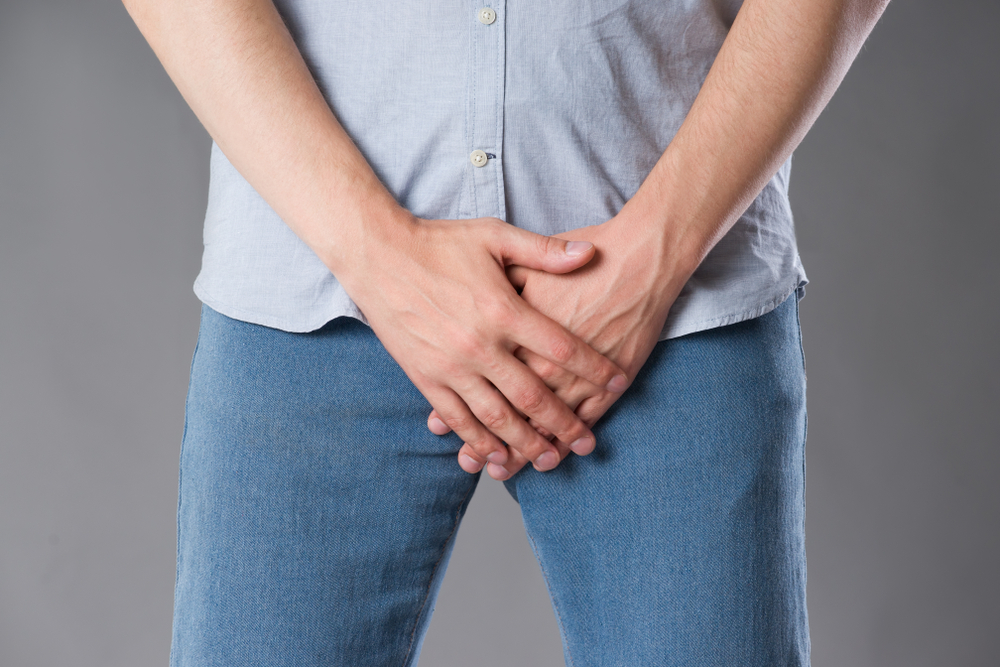Around a year ago, I started to notice I was getting up multiple times a night to pee. When I gave it some thought, I noticed I was also peeing a lot during the day. The condition worsened until I was waking up three to five times every night, resulting in acute sleep deprivation.
I got checked for ovarian cysts, kidney stones, diabetes. You name it – desperate for a solution. However, after all of the tests came back negative, I was given the diagnosis of overactive bladder (OAB).
Overactive bladder is really an annoying health concern. Many individuals suffer in silence, but just like me you are certainly not alone if you are having problems with your bladder.
The good news is – early treatment can help to lessen or even eliminate the exceedingly unpleasant symptoms. In my case, I did extensive research for some realistic and natural strategies to overcome an overactive bladder.
Some of the overactive bladder natural remedies that I found effective, you’ll find in this post.
Table of Contents
How Do You Know If You Have an Overactive Bladder? Symptoms to Look for
When you have overactive bladder syndrome, the muscles that control bladder function become involuntary. As a result, you experience urinary incontinence or loss of bladder control.
An overactive bladder can cause the following symptoms:
- A desperate need to urinate
- Urine leaks
- A lot of trips to the restroom
These symptoms might cause major life disruptions during a person’s waking and sleeping hours. Having to go to the bathroom on a regular basis and not knowing when you could experience pee leakage can be really stressful!!!
Thing to know: You’re probably wondering – how many restroom trips are considered normal in a day? A normal person urinates 6-8 times a day and once at night.
Also know about reasons for bladder pain.
Home Remedies for Frequent Urination/Overactive Bladder
The first-line treatment for OAB involves lifestyle and behavioural adjustments. Let me tell you the list of overactive bladder natural remedies that helped me a lot in dealing with stressful symptoms of OAB.
Dietary Changes and Fluid Management
Making dietary adjustments is one of the most easy approaches for treating OAB. This entails eliminating a number of recognised dietary irritants from the diet as well as watching out your fluid intake.
Let’s dig in detail!
Watch Out For Bladder Irritants
Reduce your intake of the foods and beverages that are known to cause overactive bladder. What are those irritants? Look for the below list:
- Citrus fruit and juices
- Carbonated beverages
- Coffee
- Alcohol
- Milk and milk products
- Spicy foods
- High sugar foods
- Artificial sweeteners
You may not be able to avoid all foods that irritate your bladder. But you may begin to track which foods are the worst for you and avoid them whenever possible.
And a word of caution: Cranberry juice is commonly recommended for bladder health, but this is only to prevent UTIs. When it comes to loss of bladder control, cranberry juice, like most other types of juice, may have the opposite effect. It can actually aggravate the illness. Therefore, Avoid it!

Hydrate Yourself
So, what are your options for a drink? Drinking water may be the last thing on your mind when you’re already a peeing machine. To avoid dehydration, drink plenty of water throughout the day.
However, if you drink too much fluids immediately before bed, you’ll need to empty your bladder more frequently.
Many OAB patients experience nocturia, or the need to urinate many times during the night. This is clearly disturbing to a restful night’s sleep. Furthermore, a deep sleeper may take longer to get out of bed and may unknowingly wet the bed.
What is the suggestion, then? According to specialists from the best hospitals in Lahore, limiting fluid intake before bedtime can help lower this risk and OAB symptoms at night. One suggestion is to refrain from consuming any beverages after 5 PM or 6 PM.
Bladder Control Techniques
Moving next to the overactive bladder natural remedies are retraining of the bladder. Trust me, it helped me alot, alot!!! This is the most recommended technique to reduce bladder leaking.
There are several ways to do this:
Scheduled Urination
A person with OAB can keep a record of their urine habits, including trips to the restroom, leaks, and urgent symptoms.
How to do this? You can start scheduling trips by adding 15 minutes to the usual urine times based on the patterns found in the diary. If you urinate every 60 minutes, for example, you should schedule toilet breaks every 75 minutes. The length of time between restroom visits can be gradually increased.
Double-Void
Double-voiding is one of the other natural remedies for frequent urination, especially at night. This implies that you urinate twice before going to bed.
How to do this? Go to the restroom, then wash your teeth, and finish your bedtime ritual. Then, right before you’re going to lie down, attempt to urinate again.
Kegal Exercises
Kegel contractions are exercises that strengthen the pelvic floor muscles, which govern urine flow.
How to perform this?
First find the pelvic floor muscles. How? Stopping urination in the middle of the stream can be used to locate. Squeeze these muscles for 10 seconds and then relax for 3 seconds. Repeat this pattern ten times more.
Every day, a person should strive to complete three sets of ten repetitions.
This procedure may be aided by deep breathing techniques.
Lifestyle Changes
You can also improve OAB symptoms by making a variety of lifestyle adjustments. Among them are:
Quitting Smoking
Smoking may exacerbate OAB symptoms. Coughing fits, which are common among smokers, may aggravate leaking episodes.
Losing Weight
Extra weight might put pressure on your bladder, resulting in stress incontinence. While consuming healthy foods can aid in weight loss, regular exercise, such as strength training, can aid in long-term control.
What If These Remedies Don’t Work?
If you have tried these home remedies for frequent urination and your symptoms are interfering with your general health, see a doctor. Your doctor will collaborate with you to choose the best course of action. OAB medicines or surgery may be used. To consult with the best urologists near you, you can make an appointment via Healthwire.pk.
Some Final Thoughts!
I don’t want you to be confined to your home, or more precisely, your home bathroom, because of an overactive bladder as it did to me. I hope that these overactive bladder natural remedies will assist you in regaining control of your bladder and your life.
